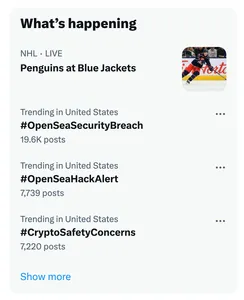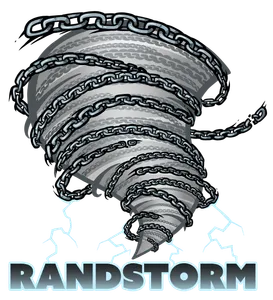On the evening of November 14 I logged on to Twitter to notice that #OpenSeaHackAlert and related hashtags were trending. But they were trending not because OpenSea had truly been hacked, but because a huge network of fake accounts with usernames similar to those of PeckShield, CertiK, and zachxbt — well-known accounts that alert crypto traders to possible scams — were spamming the hashtag. Hoping to spark panic into crypto holders who had used the popular service, as well as other services like Uniswap which they were claiming were breached, the phishers shared links to sites that would supposedly help users revoke access to their wallets by those services, securing their assets. Instead, however, those malicious sites would drain the wallets.According to researcher zachxbt, who himself was one of the impersonated, the scammers have stolen more than $300,000 in various assets using this technique.
This is not the first time such a technique has been used — a scammer attempted a similar, though less successful, scheme in April 2022. Scams like this take advantage of the poor UX in the crypto world for tracking and revoking wallet permissions that have been granted, requiring people to use third-party websites created for this purpose. Some of them are legitimate, but there are many malicious copies of these revocation sites that prey upon users who may be acting quickly in fear that their assets are at risk.








